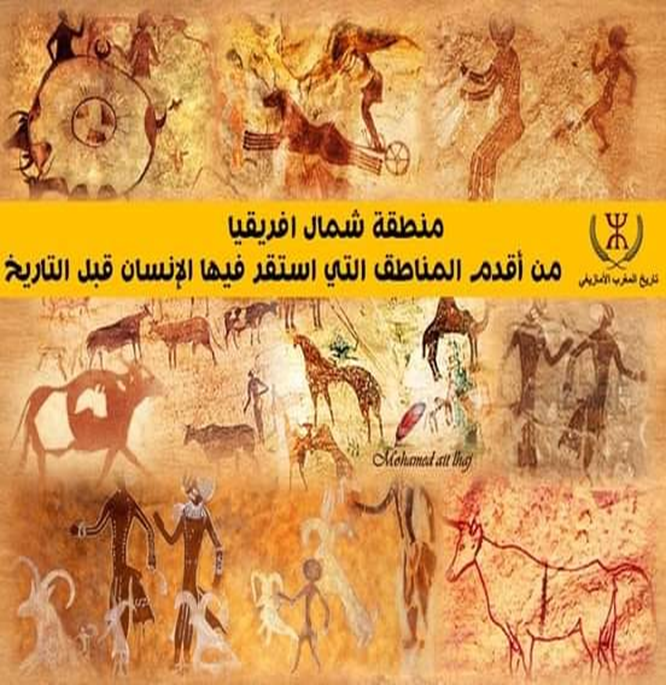(Berbers...Amazighs...Lubians...and yanair (January
Berber is a Greek word that refers to the anti-Greek peoples who are not under their control and do not owe their civilization. The people of North Africa took it with distinction until it adhered to them...
There are other names for the people of North Africa....
Among these labels are the Lubyans in relation to their settlement in the region of Libya....
The people of North Africa are called the Amazigh after the Ath Mazegh, and the Amazigh He is one of the grandchildren of the Prophet Noah, peace be upon him, and the history of the lineage, as proven by Ibn Khaldun, goes back to Mazigh bin Canaan [other than the second Canaan from whom the Arabs and the Hebrews descended] bin Ham bin Noah, peace be upon him.
(In fact, the affiliation of peoples and nations to the sons and grandsons of Noah is just a false Jewish myth that is not subject to logic or scientific evidence and arguments, and it was not mentioned in ancient civilizations. On the other hand, there are absolutely no such names in the terms of the Amazigh names, neither Ham nor Sam nor Canaan and others. And the only means that determines
parentage is DNA.(
He is one of the Hamitic peoples who inhabited Africa alongside their ancient Egyptian cousins. (A novel that was overtaken by events. A myth that was repeated in a striking way to the extent that it became a reality in the minds of fools, prodigies and the great catastrophe that some Berbers believe it and must be thrown in garbage bags).
And there is also the name Africa ... Ifriqin ... in reference to the saying of the Numidian King Masinissa, "African n African", meaning Africa for the Africans.
Amazigh history began, when "Chechnak", the Berber military leader, ascended the throne of Egypt, and established the Pharaonic royal family (22-23) about 950 years before the birth of Jesus Christ, peace be upon him.
As for the word yanair( January), it is a compound of two words: “yin” which means number one, and “air” or “ayur” meaning the moon or crescent, which symbolizes the month and from it is the first month of the Amazigh year ... not as some of the nationalists claim against it that The Lord of the Lords or the god of rain for the Romans, Iarus Uniarius, who has nothing to do with the month...
It should be noted that the calendar existed centuries before some civilizations nationalized it... Like the lunar calendar that was known thousands of years before Islam and then Muslims took it for history..
Many researchers believe that: The origin of the Gregorian (solar) calendar (whether the Julian in relation to Jules Caesar, who adopted a calendar for the Romans about 46 BC, or the Gregorian in relation to the Pope’s correction of the same calendar at the end of the sixteenth century by leaping 11 days) is in its origin from The invention of the ancient Berbers, the first inhabitants of North Africa ... It was linked to the agricultural seasons, then the Greeks took it, and they inherited it after them to the Romans who developed and modified it.
.. I invite anthropologists to research these metaphors between civilizations, including the development of the Tifinagh letters in Greece and the Latins until they became the same as they are in movements and shapes and differences in sounds... and how much they took from us and denied its connection to us in ancient and modern... ...
The months for the Berbers did not matter as much as the connection of the days with the weather and its impact on agriculture... and they divided these days according to climatic fluctuations... Iqoran... Timgarin... Awwad... Samim... Oragan... Izqzaun... And so... These periods of days are not equal...
Amqaz, to all those who cherish their origins
Source: websites



